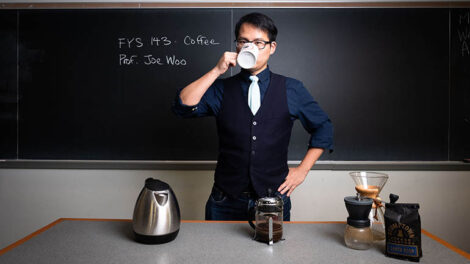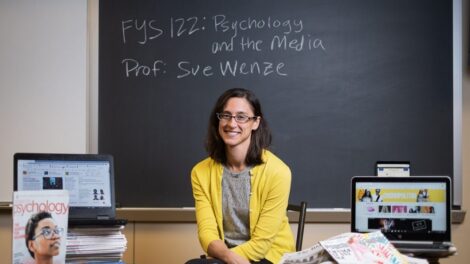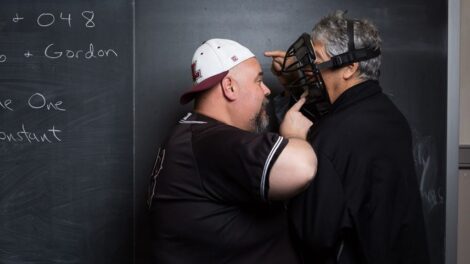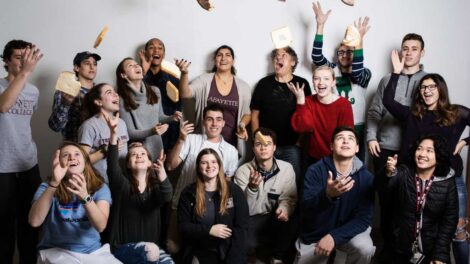Inside Lafayette’s First-Year Seminars
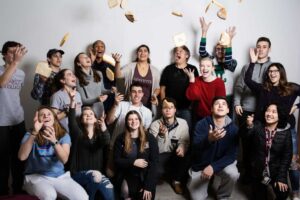
Students who take “Bread” get a chance to eat it, bake it, and study its history and place in our culture.
The program gives new college students the opportunity to think critically, write clearly, and contribute to thoughtful discussions.
While the First-Year Seminar topics vary greatly, each topic is explored from an interdisciplinary perspective. In a small class, students are able to work cooperatively with each other and interact with their professor. They are trained to conduct sound research, sort through complex issues, and express themselves effectively. The result is an engaged learning community.
Key FYS Components
WRITING
Writing is a vehicle for learning, a means to explore ideas and develop skills in academic discourse. The College’s Writing Program employs writing associates (WAs) to support all sections of FYS. Four times a semester, WA meets with students from each FYS class. It might be a one-on-one where a student pitches an essay approach or gets help with a specific concern or a small-group meeting where the WA facilitates peer editing.
EXPLORATION OF GENRES
FYS assignments provide opportunities for students to explore a range of genres so that they begin to see how writing changes depending on the situation. In addition to a print-based project, students create digital projects that work with the eye and ear, that blend text and performance. Some assignments are delivered as podcasts, infographics, blog posts, and research posters. Still, students follow time-tested processes of brainstorming, drafting, and revising.
LIBRARY RESEARCH
Through FYS, students are introduced to library resources and services and how to conduct college-level research. Each FYS has a designated librarian who conducts at least two library sessions. Librarians collaborate with FYS instructors to tailor each session to students’ needs. During these sessions, librarians discuss with students the research support available at the library, how to search database efficiently and effectively, evaluate information critically, and integrate and present information.
EXPERIENTIAL LEARNING
FYS provide hands-on learning opportunities, including the opportunity to participate in field trips, service projects, artistic performances and events.
What Students Learn
- How to critically analyze information and ideas
- How to examine topics from multiple perspectives
- How to present, debate, and defend ideas in active-learning discussions
- How to express ideas clearly in writing, a fundamental skill
- How to work collaboratively with peers
